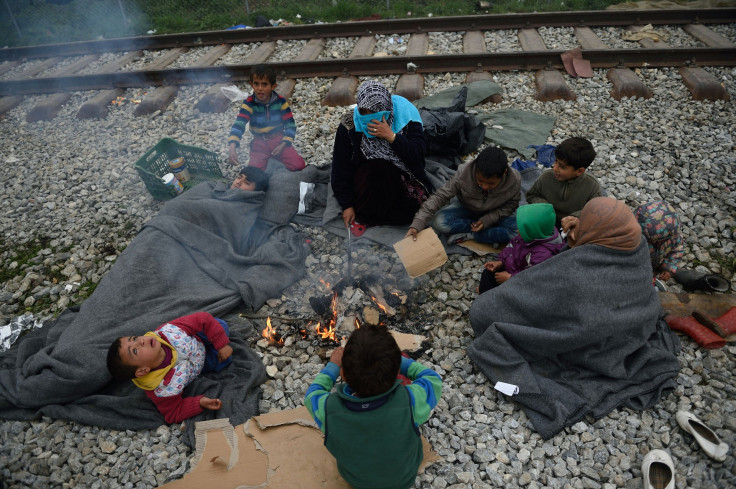Turkey-EU Deal: Refugee Crisis Not ‘Bargaining’ Issue, Prime Minister Ahmet Davutoğlu Says

Turkish Prime Minister Ahmet Davutoğlu said Friday that the “one in, one out” deal agreed with European leaders was a humanitarian move rather than a “bargaining” issue. In the “one in, one out” deal, Turkey will take in one Syrian refugee from the Greek Islands, for every Syrian refugee resettled in Europe.
“For Turkey, the refugee issue is not an issue of bargaining but an issue of values, humanitarian values as well as European values," Davutoğlu said in Brussels, where he will attend a summit with the 28 national leaders of the European Union, Agence France-Presse (AFP).
“EU and Turkey we have the same goal, the same objective to help Syrian refugees especially and also to have a new future in our continent in a bright manner,” the Turkish prime minister said. “I am sure we will be achieving our goal to help all refugees as well as deepen our relations,” Davutoğlu reportedly said.
He is scheduled to meet European Council President Donald Tusk to discuss the “one in, one out” plan. In exchange of the implementation of policy, EU will speed up discussions over Turkey’s long-stalled EU membership bid.
In last week’s meeting, in which the plan was initially proposed, EU leaders said that visa-free travel to Europe for Turkish citizens would be made available from June. However, visa-free travel to the Schengen area for Turkish citizens will reportedly depend on Turkey complying with all 72 conditions that the EU has outlined.
Under the deal, Turkey is also expected to receive an extended aid package of 6 billion euros ($6.7 billion) in exchange for taking back and, in some cases, repatriating migrants.
Hundreds of thousands of migrants have travelled through Macedonia over the past year after making the dangerous sea crossing from Turkey, with the aim of entering Europe. Over 13,000 refugees fleeing their homelands in the Middle East are stranded in unhygienic camps in Greece, most with few options of anywhere to go, since Macedonia has severely limited the entry of refugees.
© Copyright IBTimes 2024. All rights reserved.












